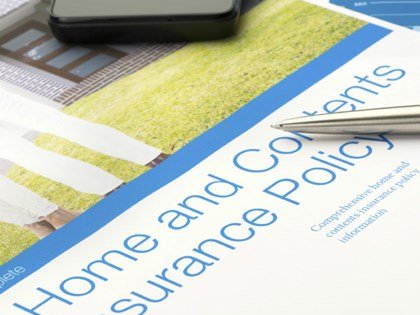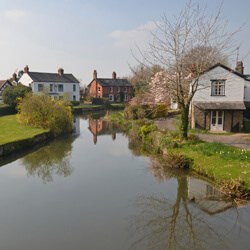Flooding vs escape of water
What's the difference?
To most people, if there's a large amount of water somewhere there shouldn’t be - covering the floor in your living room, for example - there has been a 'flood'. But when insurers look at claims for water damage, they put them in two separate categories - flooding and escape of water:
- To an insurer, 'flood damage' is caused by events outside the home, such as a river bursting its banks, or seawater coming over coastal defences.
- If the water has come from a burst pipe or a leaking appliance in your - or a neighbour's - home, your insurer calls that an 'escape of water'.
Escapes of water are the most common type of home insurance claim in the UK, and most buildings and contents insurance policies provide cover for damage caused that way. Most contents insurance policies also offer cover for 'flood damage' as standard, however if you live in a flood-risk area you may have specialist terms and conditions, so it will be worth checking what these are.

“Take a quick glance at virtually any home contents or building insurance policy and chances are it will list cover for escape of water, which means people sometimes think they are covered for all flooding eventualities. It's important to understand the differences between a flood and an escape of water incident, and exactly what is covered by your insurance policy.”
Swinton Insurance
Escape of water: In detail
With almost all houses now being fitted with central heating and washing machines, it’s easy to see why claims resulting from escapes of water are so common.
The most frequent causes are:
- Burst or leaking pipes
- Leaking appliances such as washing machines - it’s important to note that your policy will cover the resulting damage and not the cause, i.e. you won’t be covered for a new washing machine
And the damage isn’t always limited to the property where the water leak took place - in blocks of flats, leaks on upper floors sometimes result in damage to the properties below and their contents, potentially leading to very large claims. Home contents insurance policies will cover you for damage to your belongings, and most buildings insurance policies will cover you if a leak in your home causes damage in a neighbour’s flat or house (but check your policy for any liability cover).
So what are floods?
Flooding poses a big risk to homeowners across the country, and when they strike, the impact can be huge.
Floods can happen for many reasons and affect homes in many different locations. Some of the most common examples are:
- River flooding: Where a river bursts its banks and water floods the surrounding area. Generally caused in the UK by heavy rainfall or melting snow, but can also happen as a result of blockages in streams, such as fallen trees.
- Coastal flooding: Heavy storms and high sea levels can combine to allow seawater to flood onto the land, affecting homes in coastal areas not built on higher ground.
- Sewer flooding: This often affects people living in more urban areas. It’s caused by sewers that are unable to channel away enough water from an area, so it builds into a flood. The two biggest causes of this are high rainfall or blockages.
- Groundwater flooding: Where water levels under the ground rise above normal levels and approach the surface. This is caused by long periods of heavy rain (called pluvial flooding) and can last for weeks or even months in the worst cases. It affects houses in many parts of the country, especially those located close to sea level.

“If you’re looking at buying a new home, you can check its level of flood risk by referring to a flood map, or checking the postcode with the Environment Agency.This is something an insurer will check before offering you cover.”
Swinton Insurance
Find out more about Home Insurance from Swinton...
- Flood Risk Insurance - Flexible policies to suit a wide range of circumstances
- Combined Home Insurance - Protect your home and its contents
- Buildings Insurance - Flexible buildings cover to suit your needs
- Contents Insurance - Protect your possessions from loss or damage
Looking for something else?